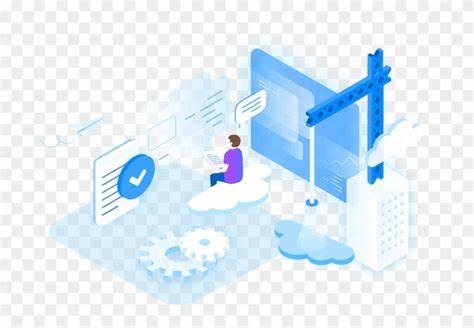In the ever-evolving landscape of technology, selecting the right IT service provider is a critical decision for businesses of all sizes. One of the most significant decisions in this process is whether to outsource IT services or maintain an in-house IT department. Let’s explore the key factors to consider when evaluating outsourcing versus in-house solutions for your IT needs. Let’s delve into the pros and cons of each approach to help you make an informed decision for your business.
Understanding the Pros and Cons of Outsourcing IT Services
Outsourcing IT services has become a popular choice for many businesses due to several compelling benefits. First and foremost, outsourcing is often more cost-effective than maintaining an in-house IT department. With outsourcing, businesses can access specialised expertise without the overhead costs associated with hiring and retaining full-time employees. Additionally, outsourcing provides scalability and flexibility, allowing businesses to scale their IT resources up or down based on fluctuating needs. This flexibility is particularly advantageous for small and medium-sized businesses looking to adapt to changing demands without the hassle of hiring additional staff. Click the link for help understanding the different types of IT services you can enjoy.
However, outsourcing IT services also comes with its own set of potential drawbacks. One of the primary concerns is the loss of direct control over IT operations. When you outsource IT services, you are entrusting a third-party provider with critical aspects of your business. This loss of control can lead to challenges in aligning IT strategies with overall business objectives and may result in communication gaps between the business and the service provider. Furthermore, businesses that outsource IT services may become overly dependent on their chosen provider, which could pose risks in the event of service disruptions or changes in the provider’s offerings.
Examining the Advantages and Disadvantages of In-House IT Departments
Maintaining an in-house IT department offers its own set of advantages and disadvantages. One of the primary advantages is the direct control businesses have over their IT operations. With an in-house IT team, businesses can oversee all aspects of IT strategy, implementation, and management, ensuring alignment with business goals and objectives. In-house IT departments also provide immediate response to issues and challenges, as IT staff are readily available on-site to address any issues that arise. Additionally, businesses with in-house IT departments can tailor solutions to meet their specific needs and preferences, leading to more customised and efficient IT systems.
However, in-house IT departments also have their downsides. One of the most significant drawbacks is the higher cost associated with recruitment, training, and retention of IT staff. Building and maintaining an in-house IT team requires significant investment in salaries, benefits, training programs, and infrastructure. For small and medium-sized businesses with limited resources, this can be a prohibitive factor. Additionally, in-house IT departments may have limited access to specialised expertise, particularly in emerging or niche areas of technology. Keeping up with the rapid pace of technological advancements can also pose challenges for in-house IT teams, as they may struggle to stay abreast of the latest trends and innovations.
Knowing When to Use IT Support Services
The cost of IT support services can throw you into doubt. While you love the idea of having IT support on demand, you also need to watch your business expenses. Can you really deal with this added cost?
Well, it’s best to think about it this way. You’ve got a lot to lose if you don’t take IT seriously. Having outages and problems can drive away customers, frustrate your employees and make you fall behind the competition. To really evaluate whether you need IT support services, it’s best to look out for the signs. Here are some ways you know it’s time to make the investment.
You Suffer from Regular Technical Problems
Do you feel like your business is constantly suffering from some type of IT issue? While you might think that some aren’t a big deal, when you have systems crashing all the time and employees can’t do their jobs, this starts to impact customers. Indeed, if the performance of your IT is becoming an issue, it’s time to invest in 24/7 support. This ensures that any outages or connectivity problems are dealt with as soon as possible. You know that experts are in your corner to deal with this type of situation.
Employees are Struggling
Most employees that you hire will be chosen for their experience and skills. But, this might not be in IT. Instead, they are experts in other fields, but they can become frustrated when they have to deal with bad IT. In particular, they can struggle to perform, which can make them unhappy at their jobs. It can also impact the experience of customers if systems go down. Therefore, if you find out that your employees are struggling and the feedback on IT help is negative, you should use IT support services. This will ensure professionals are on standby, allowing your team to work efficiently through a problem.
You Are Growing
Are you currently growing your business? You’re going to be trying to improve all of your systems in order to continue building on your success. However, when you’re becoming a bigger company, you can’t afford for IT to cause problems for you. Instead, this is when you need to invest in IT support services so that it can take this pressure away while you grow.
Conclusion
Choosing between outsourcing and in-house solutions for your IT needs is a significant decision that requires careful consideration of various factors. By weighing the pros and cons of each approach and evaluating your business’s specific requirements, you can make an informed decision that aligns with your goals and objectives. Whether you opt for outsourcing or maintaining an in-house IT department, the key is to select the solution that best meets your needs, fits your budget, and supports your long-term growth and success.


![7 Best POS Software in the UK [2026 Edition]](https://todaynews.co.uk/wp-content/uploads/2026/02/7-Best-POS-Software-in-the-UK-2026-Edition-360x180.png)








































































